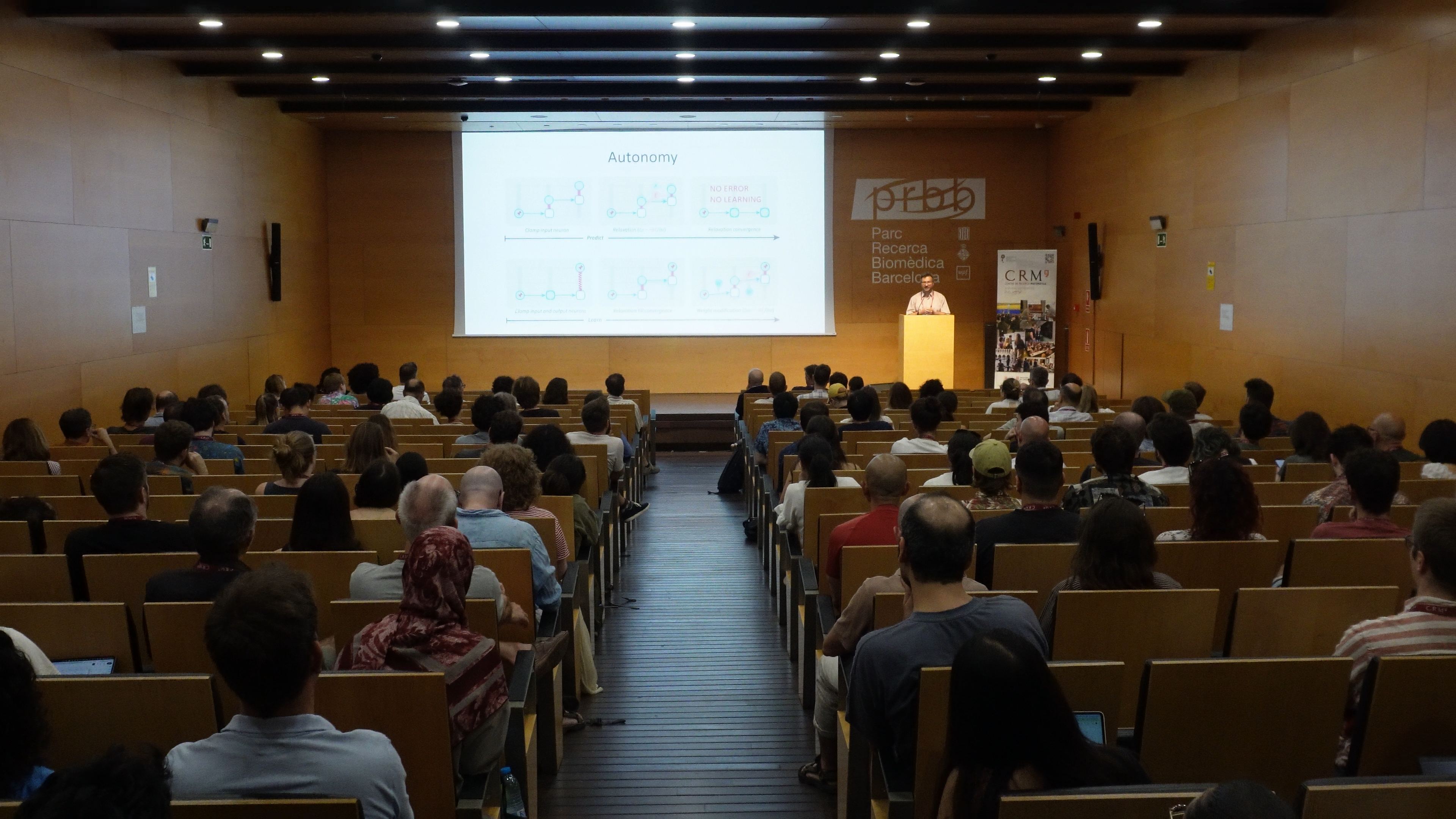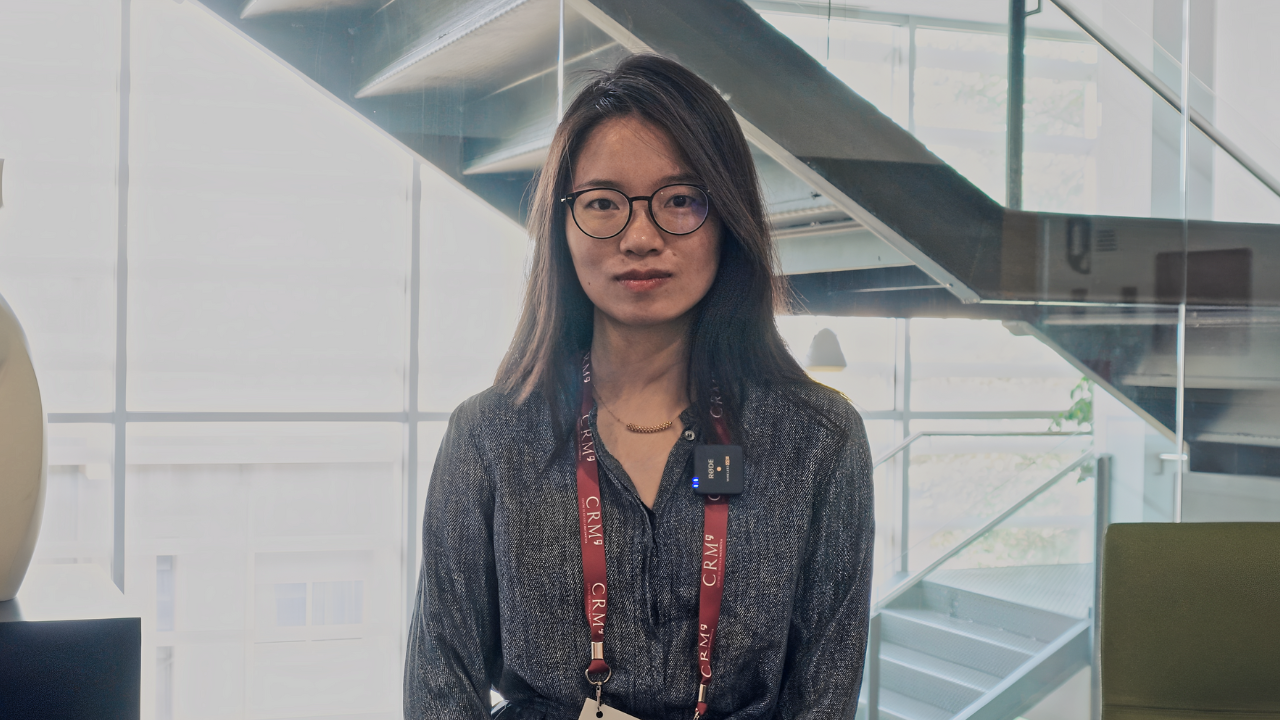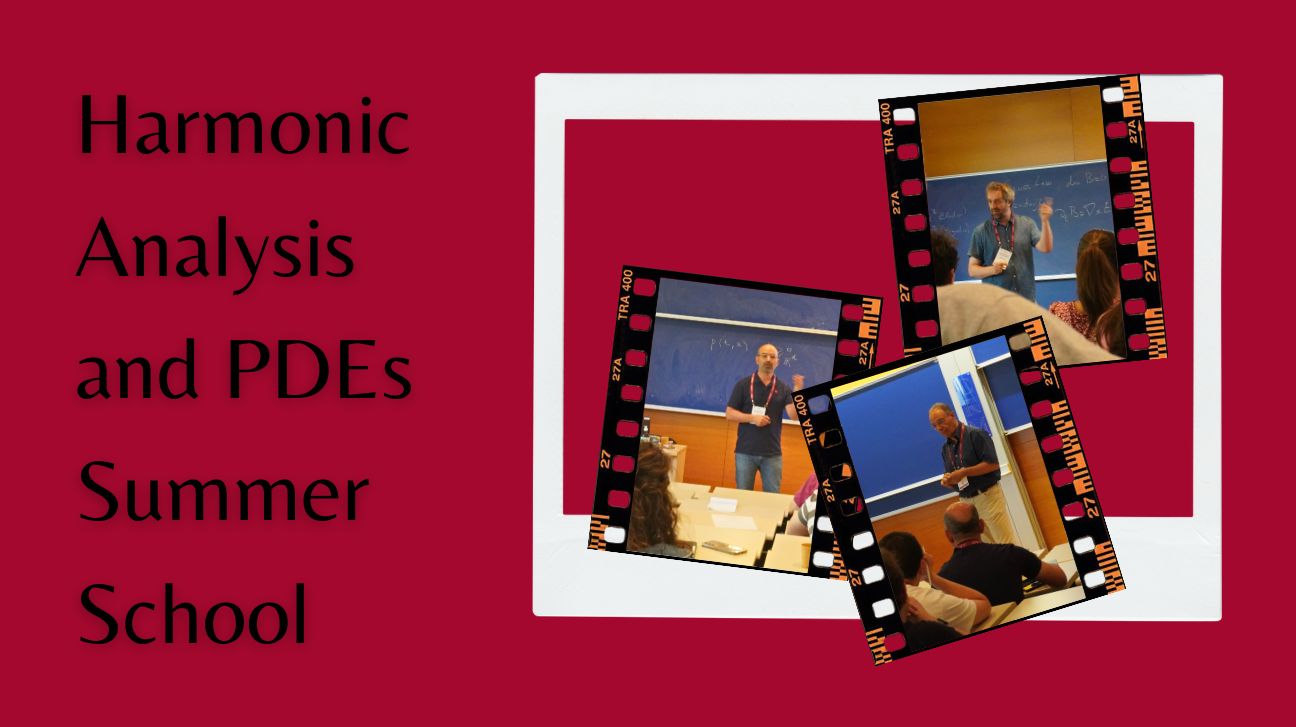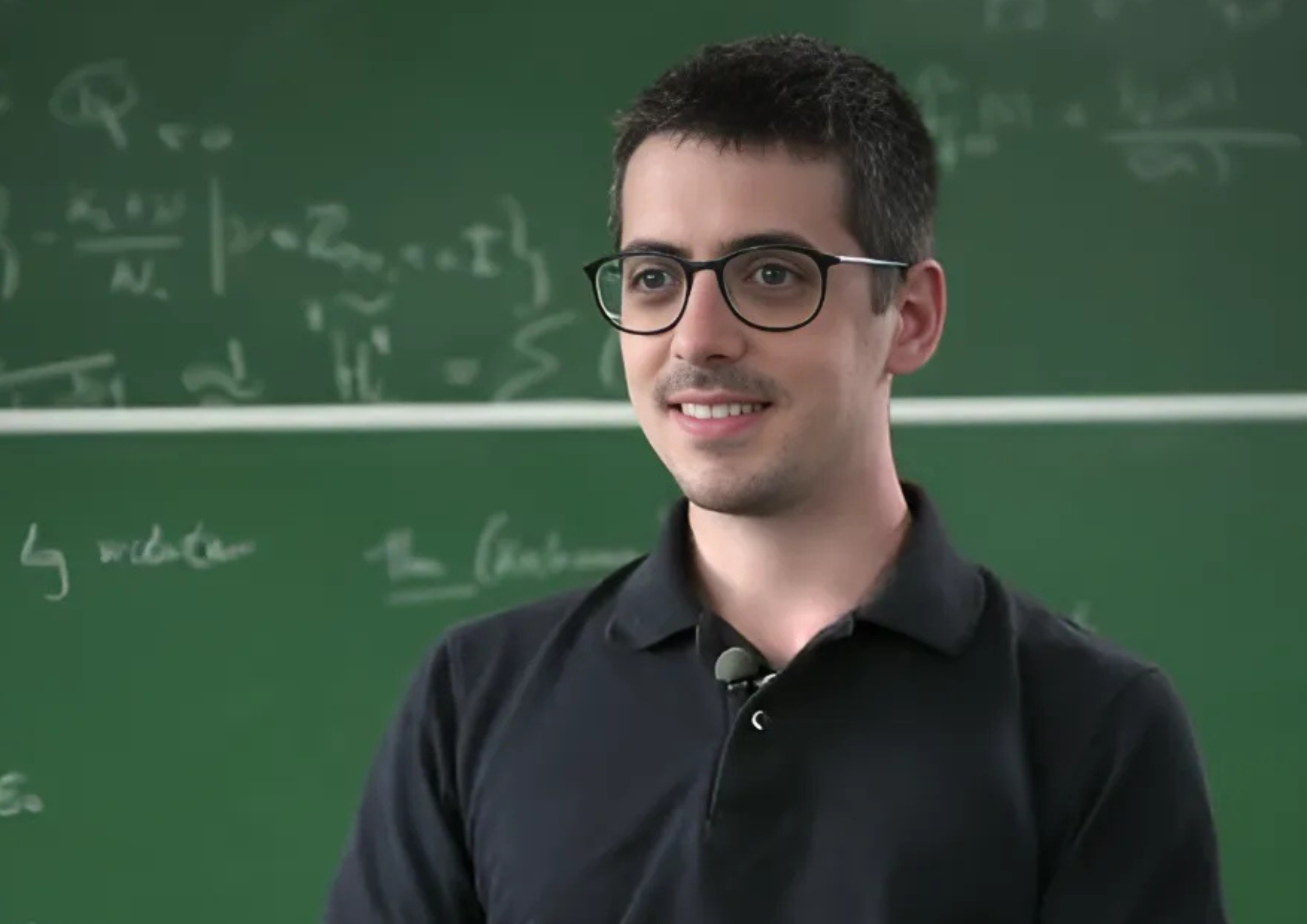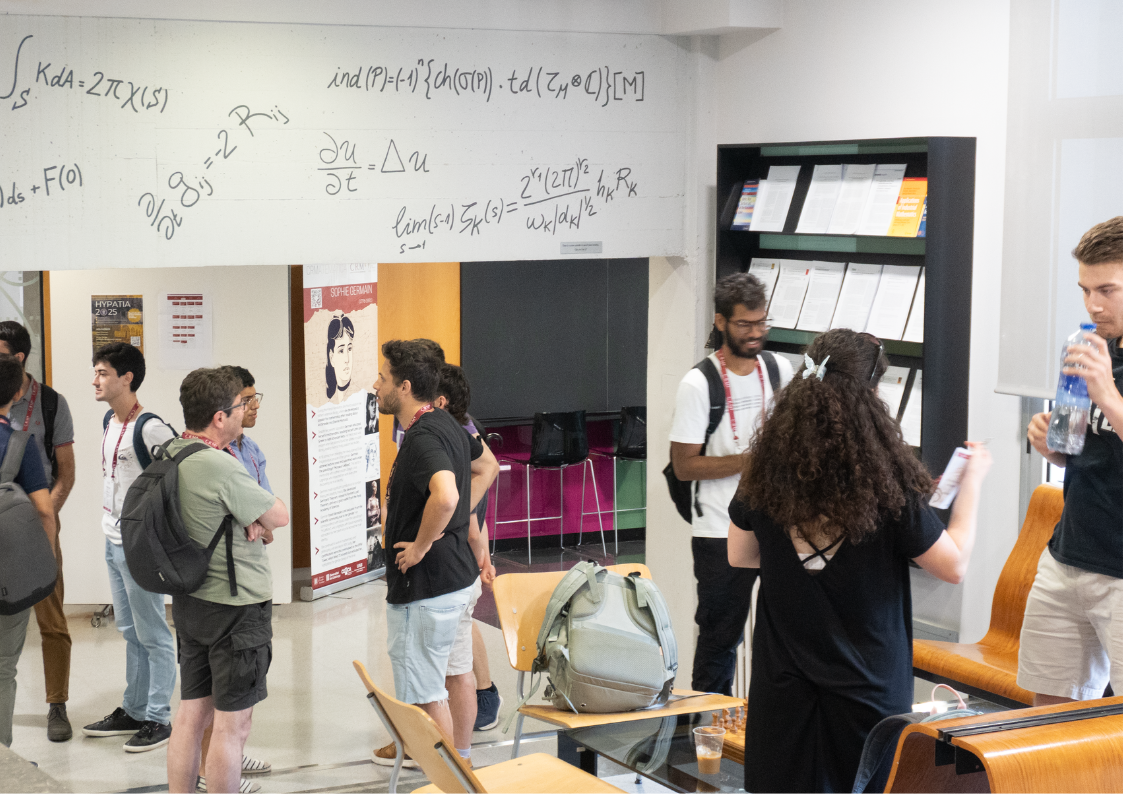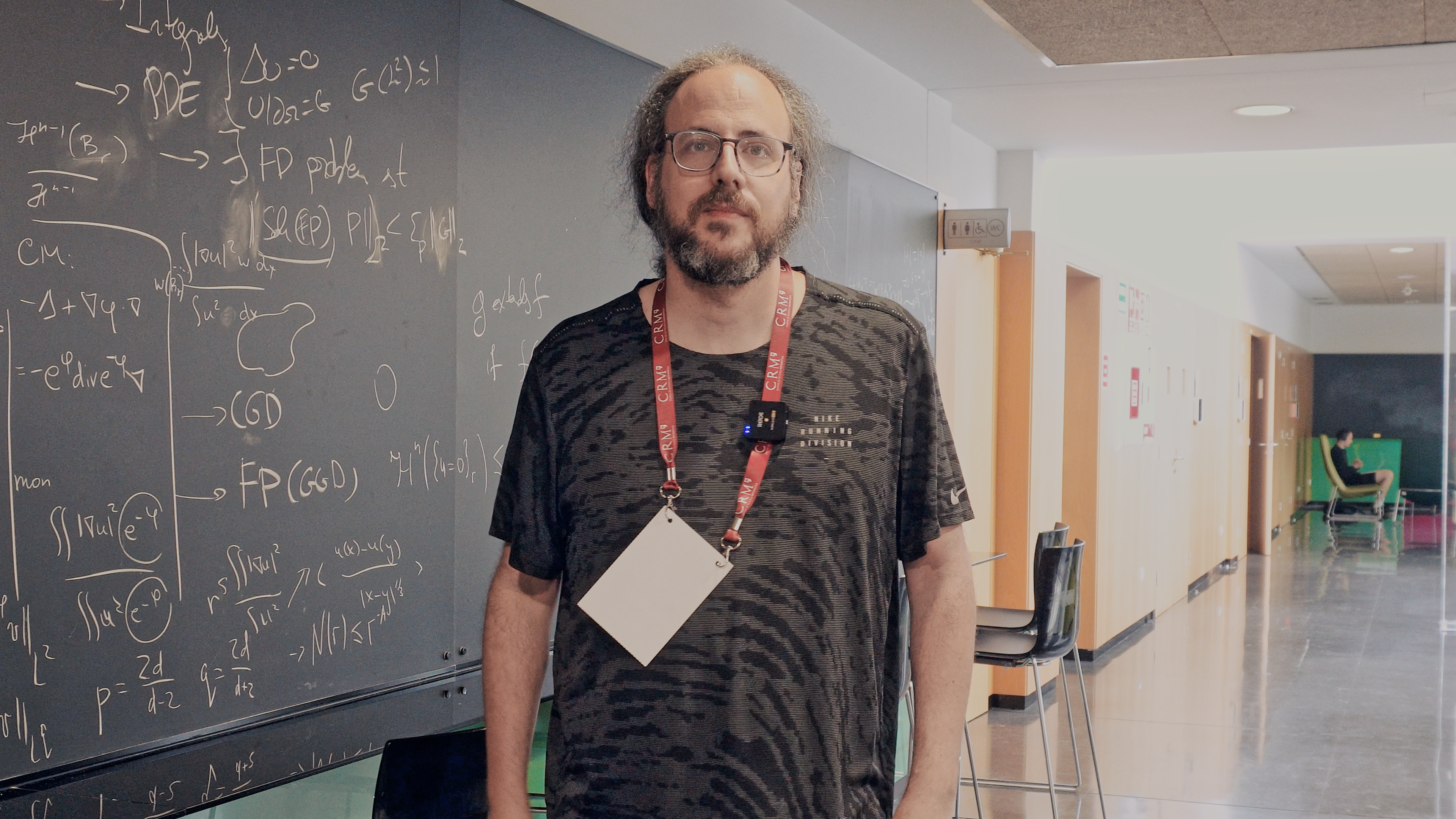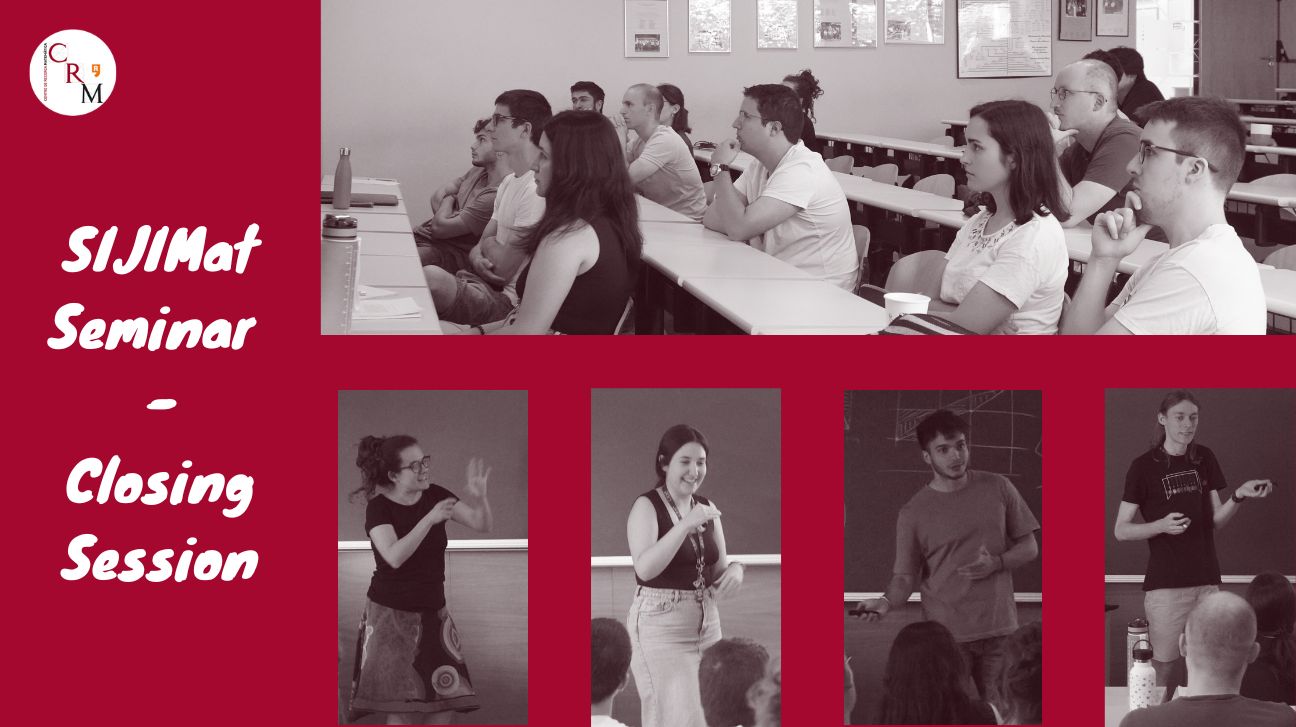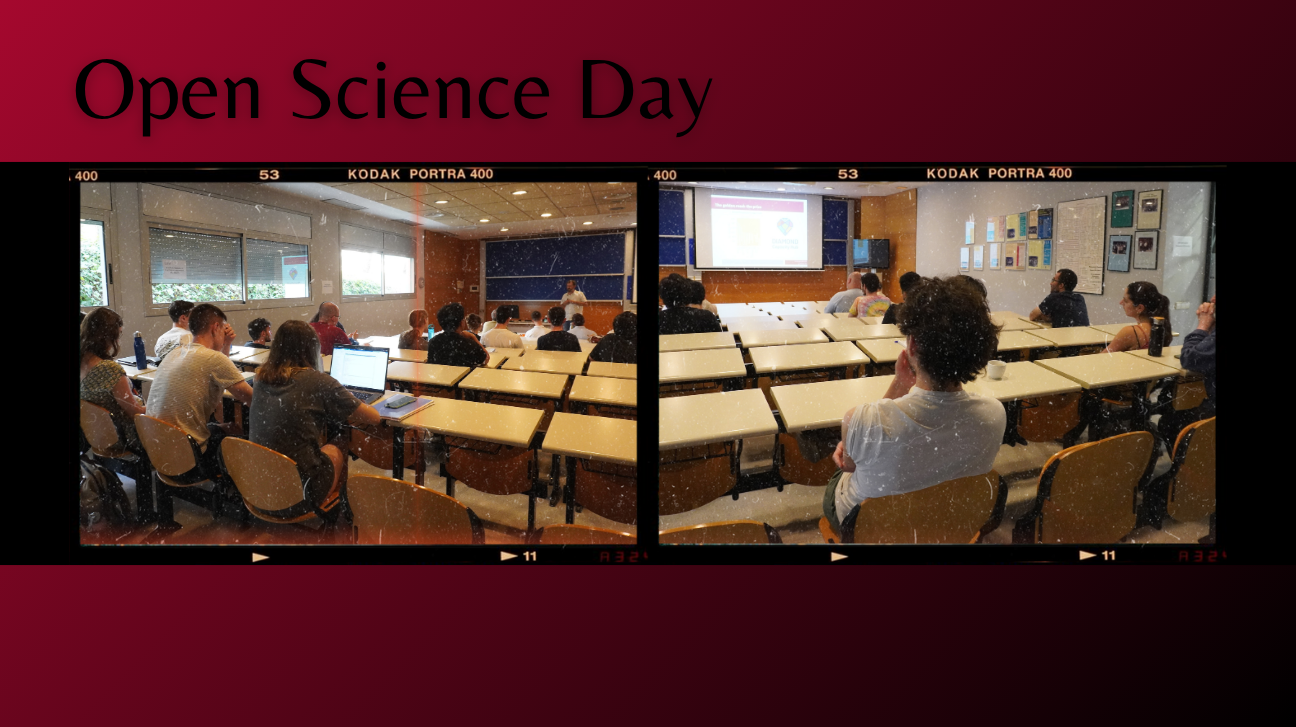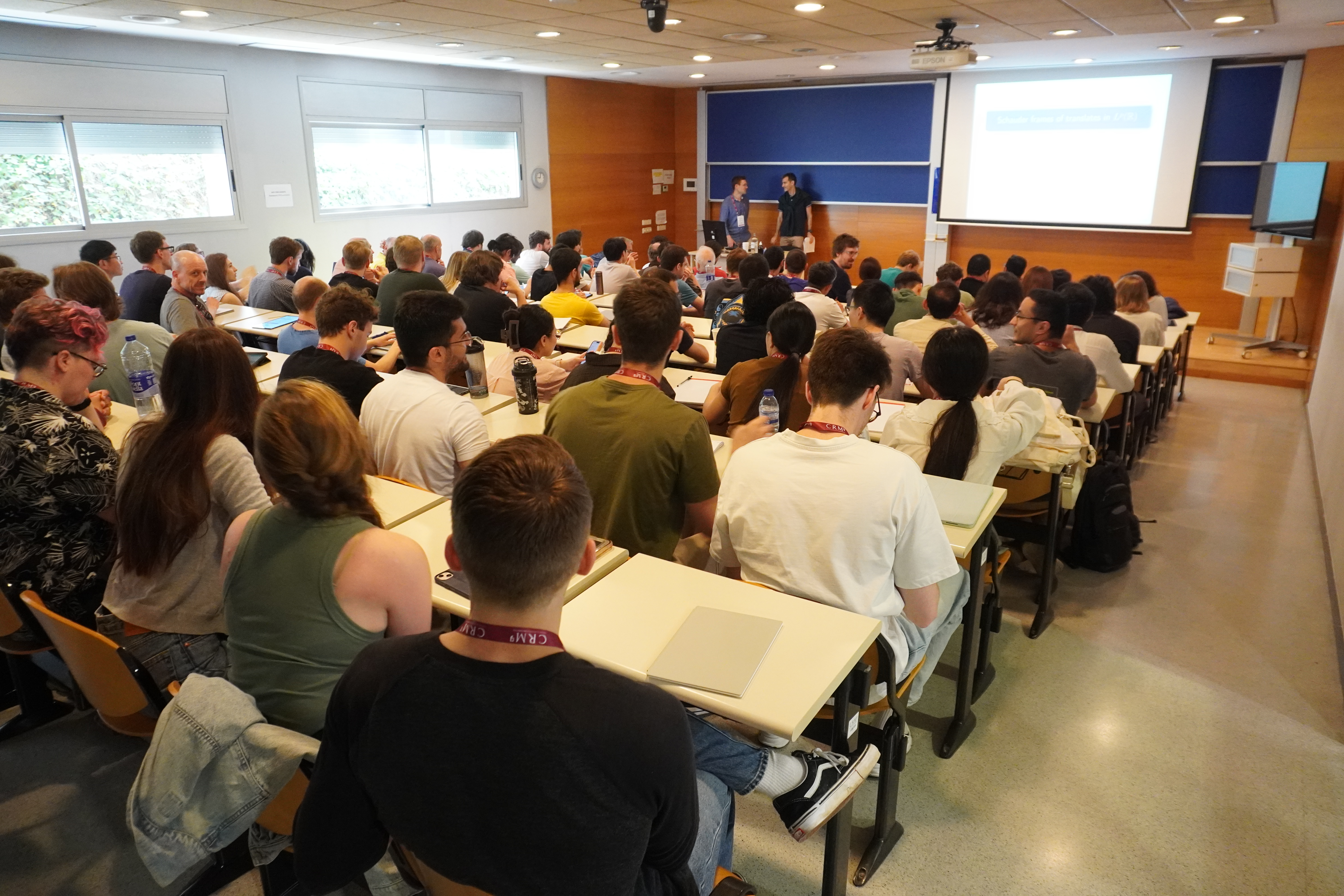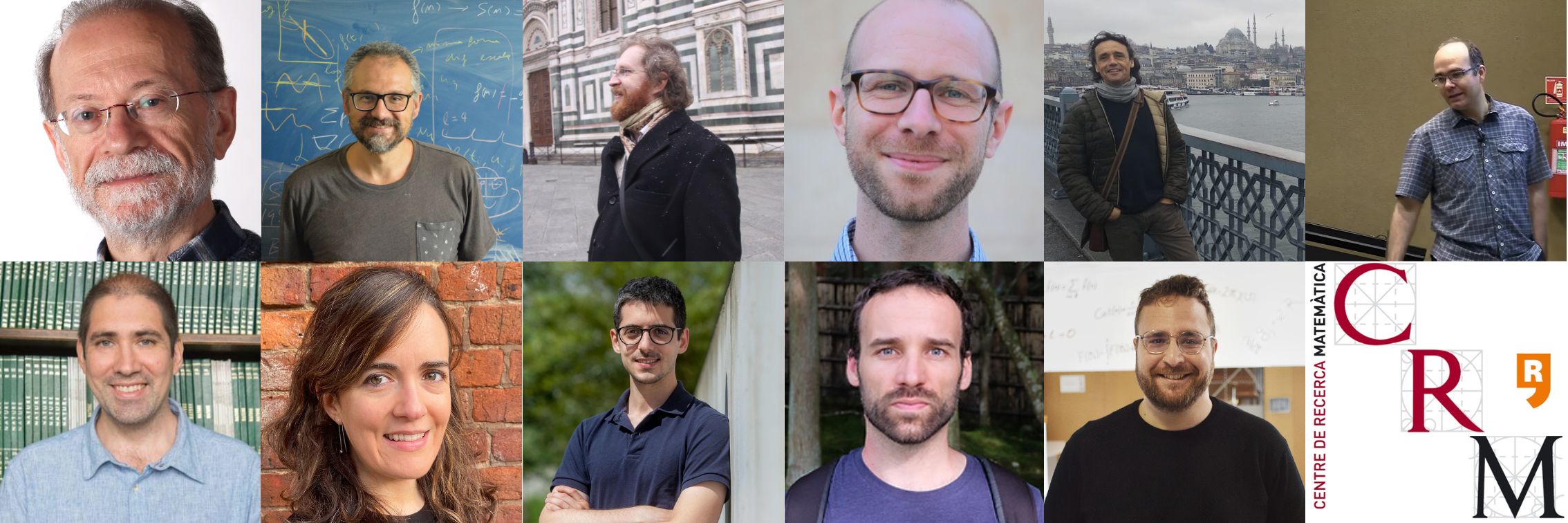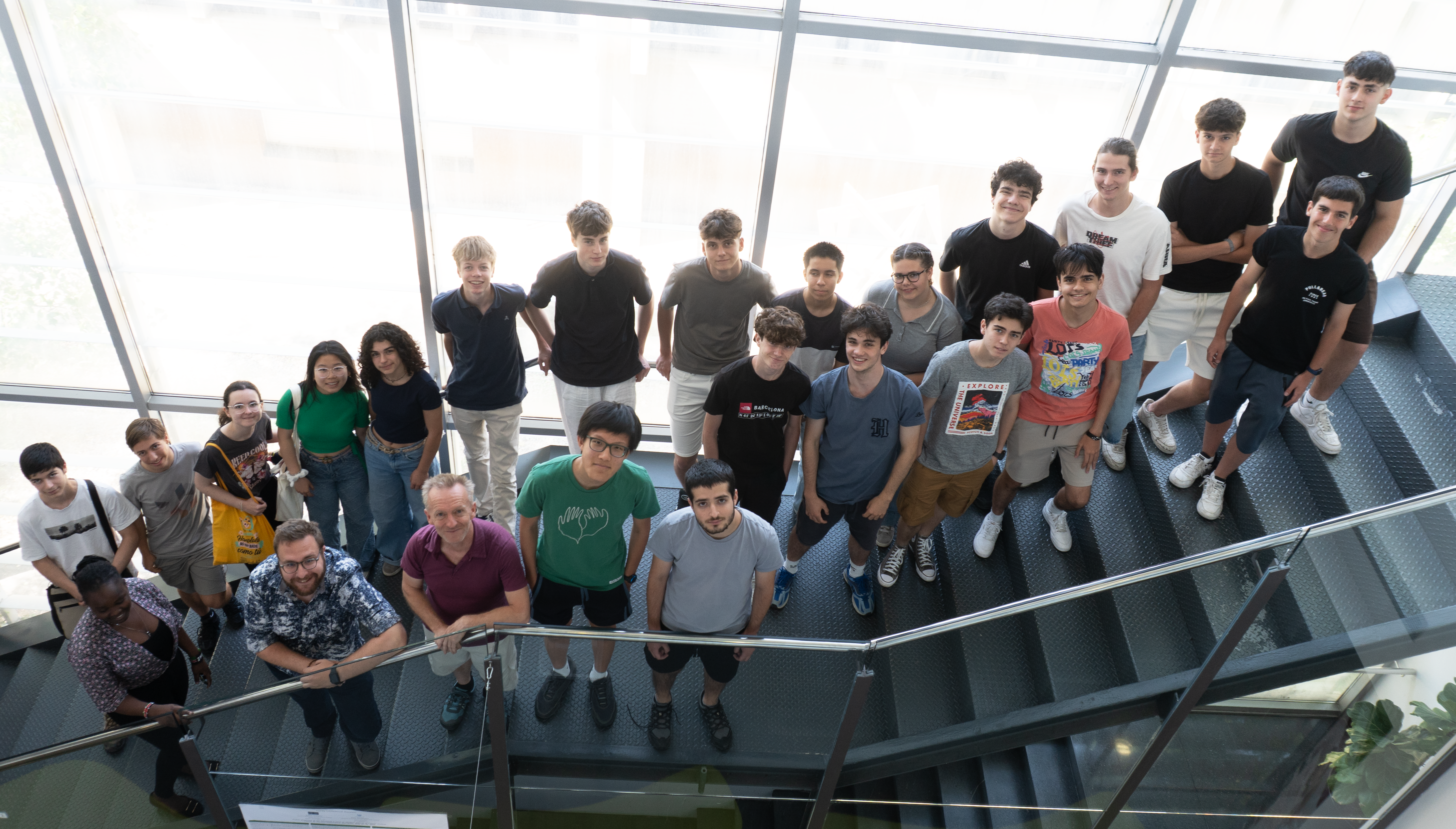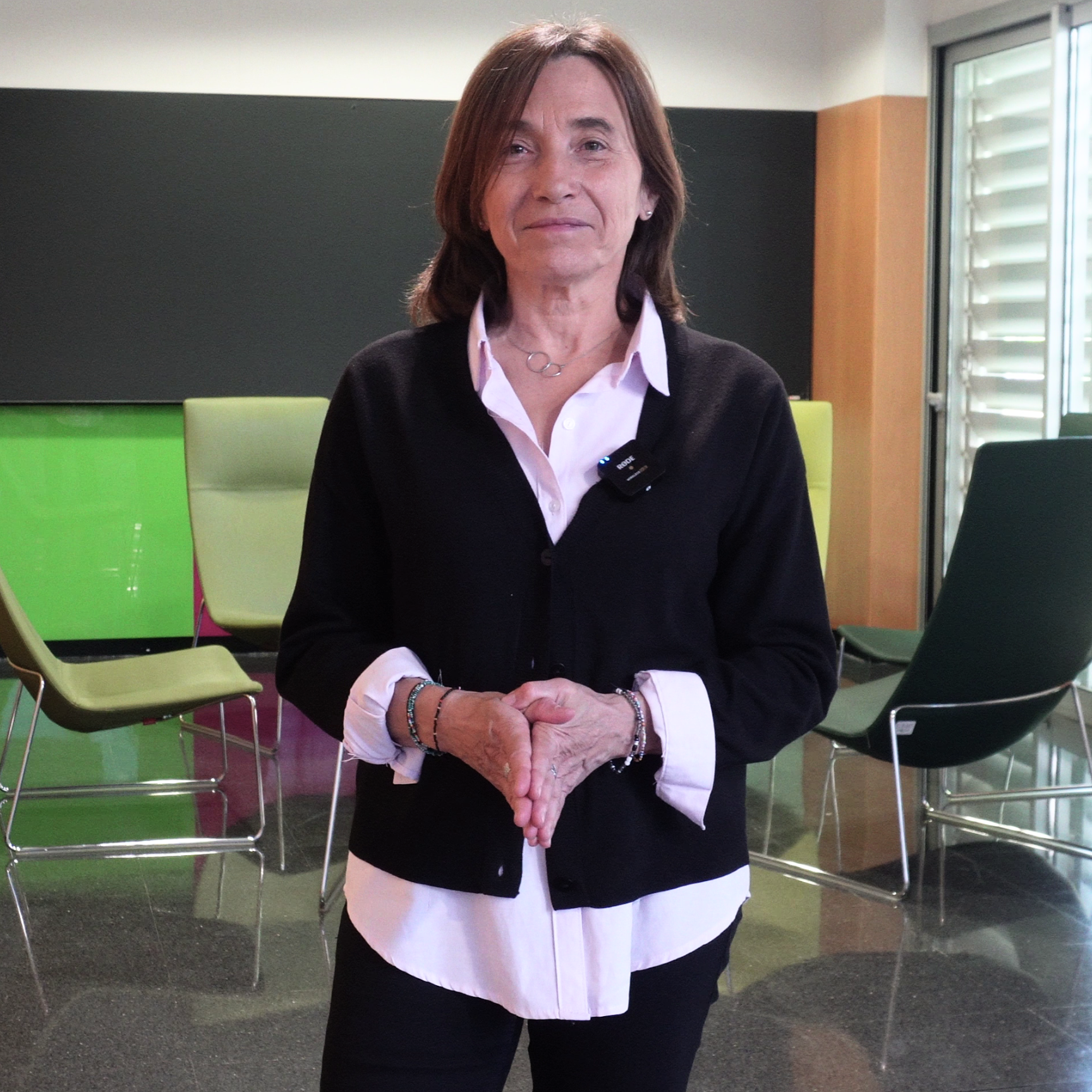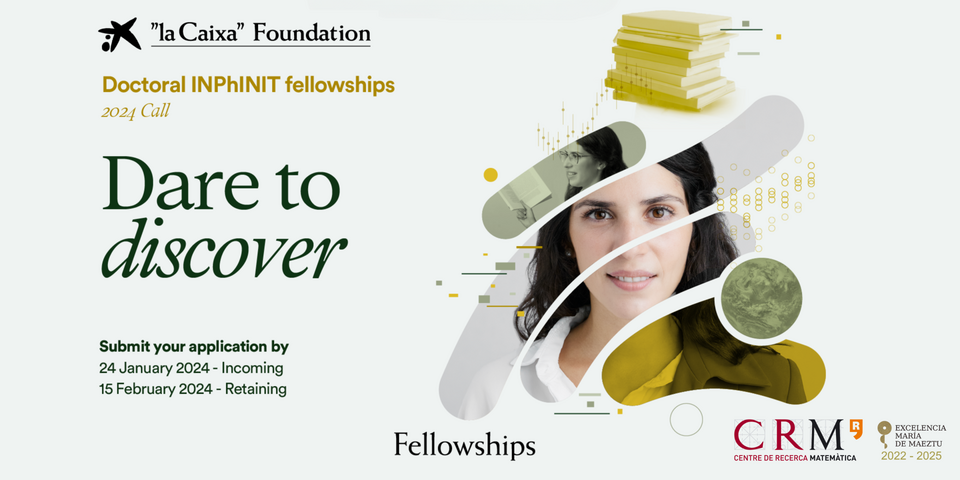
The CRM is offering 9 positions as part of the INPhINIT Incoming Call 2024 granted by ”la Caixa” Foundation.
Application Deadline: 24 January 2024, 2 pm (Peninsular Spain time)
The “la Caixa” Foundation is offering 30 doctoral fellowships for aspiring researchers interested in undertaking their doctoral studies at distinguished Spanish research centres. These centres are recognized with prestigious accreditations such as the Severo Ochoa, María de Maeztu, or the Carlos III Health Institute, as well as top Portuguese centres acknowledged as “excellent” by the Fundação de Ciência e Tecnologia.
This opportunity is open to candidates in the fields of technology, engineering, physics, mathematics, and life and health sciences who meet the eligibility criteria for admission into a doctoral program. Additionally, applicants must comply with mobility requirements and should not have previously started the doctoral studies they are applying for.
The CRM is offering 9 positions to carry out PhD projects supervised by our researchers. CRM’s mission is centred around four key objectives: conducting high-quality, internationally recognized research with a focus on real-world applications and interdisciplinary collaboration; transferring knowledge through validated mathematical research that addresses societal challenges; offering advanced training in mathematics through collaborative efforts with other research institutions; and disseminating mathematical advancements to the wider academic community and society.
This multi-faceted approach underlines the centre’s dedication not just to advancing mathematical knowledge, but also to applying this knowledge in practical contexts that have a tangible impact on society. The CRM’s efforts in organizing international research programs on selected topics further enhance its role as a hub for scientific exchange, fostering new collaborations among diverse researchers. This environment is conducive to interdisciplinary research, allowing for a rich exchange of ideas and perspectives that drive innovation and discovery in the field of mathematics and its applications.
The CRM is offering the following positions:
Klaus Wimmer | Computational Neuroscience
Ageing frequently leads to a decline of cognitive abilities, with working memory being one of the notably affected functions. These cognitive changes appear to result from a combination of structural and functional changes in individual neurons, specific brain areas, and connections between brain areas. However, despite a wealth of experimental data, a coherent theoretical framework of how the various age-related changes to neurons and neural pathways interact and lead to declines in working memory and decision making is currently lacking.
In our group we have been studying the neural basis underlying working memory and decision making through a combination of neural network modeling and neural data analysis. We are now collaborating with an experimental group that gathered a large dataset of 40 rhesus monkeys (young, middle-aged and aged) that have been tested behaviorally, and electrophysiological and anatomical measures have been obtained, including brain-wide measures of structural and functional connectivity using MRI. Most previous computational models, including ours, have focused on studying the local circuit dynamics in prefrontal cortex to understand working memory function. While the prefrontal cortex is certainly a key player in working memory function, it is increasingly becoming clear that the underlying computations are distributed among many brain regions. The aim of this project is to build the first large-scale model of age-related changes underlying working memory, constrained by experimental data.
We are looking for a graduate student motivated to pursue a PhD thesis in computational neuroscience. As outlined above, the idea is to study the effects of aging on brain networks that underlie working memory and decision making, using a combination of large-scale computational modeling and analysis of experimental data obtained by a collaborating experimental laboratory. The ideal candidate has strong quantitative skills and a keen interest in neurobiology. We offer a rich scientific environment at the CRM and in the Barcelona computational and systems neuroscience community (www.barccsyn.org). A research stay in the experimental lab is possible (and encouraged).
OTHER RELEVANT WEBSITES
Project webpage https://www.crm.cat/crcns/
Luis Dieulefait | Algebra, Geometry, Number Theory and Topology
Goals:
The first goal for this project is to quantify in a precise way the amount of level lowering for weight 2 modular forms that can occur under certain hypothesis. Another main goal for the project is to apply this new characterization to the resolution of new Diophantine equations and the simplification of safe chain of congruences and base change results.
Methodology:
We will approach the first goal of this project via the relation of modular forms of weight 2 with abelian varieties and a classical result of Serre–Tate.
We will carefully study the possible compatible scenarios and, in particular, we aim to characterize when the theorem of Serre-Tate forces at least one of the 2-dimensional blocks in the residual Galois representation attached to a modular abelian variety to ramify.
The second part of this project focus on applications of the previous idea to the modular method (for solving Diophantine Equations of Fermat type) and to safe chains of congruences (a method of Dieulefait to solve cases of Langlands functoriality)
Job position description
The fellow will work as a PhD research student within the research group “Seminari de Teoria de Nombres de Barcelona”, he/she will participate in the different seminars and advanced courses organized regularly by the group while advancing in the research project described in the previous section.
Some activities that we can anticipate the candidate will participate in are the annual workshop of the number theory groups in Barcelona (STNB), conferences, and research schools.
OTHER RELEVANT WEBSITES
Personal webpage of the group leader
Eva Miranda | Algebra, Geometry, Number Theory and Topology
In 2021 the supervisor Miranda together with Cardona, Peralta-Salas and Presas designed an abstract fluid computer (PNAS, 2021). Our approach integrated techniques from contact geometry, the path method in Symplectic geometry, symbolic dynamics, and fundamental concepts related to the Turing completeness of a dynamical system (a system capable of simulating a Turing machine). This groundbreaking achievement holds significant implications for various reasons, primarily for implying the existence of undecidable paths. The tour de force of these proofs was to use a mirror between geometrical objects (contact manifolds and Reeb
fields) and Fluid Dynamics (Euler equations and Beltrami fields) proved by Etnyre and Ghrist back in 1999. Miranda together with Dyhr (inphinit La Caixa PhD student), Gonzalez-Prieto and Peralta Salas have recently generalized these mirrors to include other geometrical structures on the one side and other solutions of PDE’s on the other side. The understanding of the geometric aspects within the realm of Fluid Dynamics and more general PDE’s remains incomplete. The goal of this thesis is to pursue this investigation between Geometry and Fluid Dynamics going in the direction of improving the abstract design of a hybrid computer between “Fluid computer” and Quantum computer following Feynam’s rules as being currently investigated by Miranda, Gonzalez-Prieto and Peralta- Salas. This naturally takes us to the realm of Topological Quantum Field Theory. The purpose of this thesis is to relate invariants and complexity invariants from the initial geometry reflects into the PDE’s and the TQFT template associated to the generalization of the fluid computer.
The aspiring scholar is poised to become an member of a dynamic group situated at the confluence of Geometry, Dynamics, and Partial Differential Equations (PDEs). The student will be affiliated both the Laboratory of Geometry and Dynamical Systems at UPC and the distinguished team dedicated to Geometry and Dynamical Systems at CRM. The focal point of the forthcoming doctoral thesis will rest squarely at the intersection of these aforementioned disciplines: Geometry, Dynamical Systems, and PDEs but will also venture into new aspects such as Quantum computing and Topological Quantum Field Theory.
OTHER RELEVANT WEBSITES
Homepage of Eva Miranda https://web.mat.upc.edu/eva.miranda/nova/
Sergey Tikhonov | Harmonic Analysis and Approximation Theory
The research of the group is devoted to certain aspects of harmonic analysis and approximation theory. From its foundation in 2009, the CRM group “Harmonic Analysis and Approximation Theory”’ has been growing intensively. The group has incorporated 18 members (PhDs and postdoctoral researchers).
Since the foundation of the group, its members were awarded several prizes. The main ones are ISAAC prize for achievements in analysis, Popov Prize in Approximation Theory, Ramon y Cajal program, Simons and Pembroke fellow, the Humboldt Research Fellowship for Experienced Researchers, and Friedrich Wilhelm Bessel Research Award.
During the last five years, six group members have successfully defended their PhD theses under the supervision of the group leader Dr. Sergey Tikhonov and five postdoctoral researchers were supported by various international funds and organizations.
The group members have organized and actively participated in many programs and conferences. In particular, the principal investigator, Sergey Tikhonov, organized two research programs in INI (Cambridge) and two programs in CRM (Barcelona) as well as many conferences all over the world.
The research output of the group members has been published in the leading scientific journals. In particular, several long-standing problems were solved by group members with the papers published in Annals of Math, Constr. Appr, IMRN, JEMS.
The main goal of the project is to obtain new uncertainty principle relations for the Fourier transform. The uncertainty principle is a fundamental concept in physics (quantum mechanics) and mathematics (Fourier analysis). From the mathematical point of view, we examine the fact that both function and its Fourier transform cannot be simultaneously localized. Our goal is to show quantitative relations for uncertainty principle. As a result, we arrive at several important applications in harmonic analysis and PDEs.
Job position description
The main research topic of this project is at the intersection of three areas of analysis: harmonic analysis, functional analysis, and approximation theory.
The main tasks to be undertaken by the candidate are:
– Acquiring and strengthening the necessary background on constructive theory, harmonic analysis, and complex analysis.
– Pursuing original results within the research lines previously depicted under the guidance of his supervisor and elaborating research articles reporting the achievements to be published in peer-reviewed international journals,
– Taking active part in the scientific life of the Barcelona Harmonic analysis group.
Requirements for eligibility are capacity of autonomous work and a solid and demonstrated education in mathematical analysis.
The overall training activities can be divided into several categories. First, collaborating with the supervisor, his team, and analysis community in CRM, the applicant will acquire new knowledge, valuable for this research, in the field of classical approximation theory and harmonic analysis. Moreover, the holder of the position will prepare several scientific papers to publish in high rank journals. Participation in seminars, conferences, graduate courses organized by Barcelona Graduate School of Mathematics is an important part of the process. The applicant will be supervised by Prof. Sergey Tikhonov (ORCID0000-0001-5061-4308), an ICREA Research Professor at CRM.
OTHER RELEVANT WEBSITES
Personal webpage of Sergey Tikhonov
https://www.icrea.cat/Web/ScientificStaff/Sergey-Tikhonov-479
Victor Rotger | Algebra, Geometry, Number Theory and Topology
In recent years the theory of p-adic L-functions and Euler systems has exploded into a rich and extremely active subject. It is our plan to develop frontier research in this field by introducing new ideas which we hope will allow us to obtain new insights on the conjectures of Stark, Birch and Swinnerton-Dyer (BSD) and Bloch and Kato (BK).
A p-adic L-function is a rigid-analytic function whose values, at special points, are related to classical L-functions. An Euler system is a compatible family of motivico-geometric elements. They are interrelated if there is a reciprocity law allowing to recover one from another by means of a regulator map in the sense of Perrin-Riou. Until recently there were very few Euler systems and p-adic L-functions for which one could establish a reciprocity law, mainly due to the fundamental works of Kato and Perrin-Riou. At present the picture is much better understood thanks to the works of Zerbes, Loeffler, Pilloni, Urban, Skinner, Bertolini, Darmon and Rotger, among others.
Furthermore, celebrated applications to the conjectures of BSD and BK have been obtained, establishing plenty of new theoretical and experimental evidence in rank 0 and 1, and gaining the first non-trivial insights in the mysterious scenario of rank 2 thanks to works of Darmon, Lauder and Rotger.
Most of the literature, however, is devoted to applications of Euler systems and p-adic L-functions at smooth points in the rigid-analytic space parametrizing the Euler system. The main goal and unifying principle of our Ph.d project is delving into the study of Euler systems, p-adic L-functions and associated reciprocity laws at points that fail to be smooth in the parameter space. These points exhibit intriguing phenomena, require novel techniques, and are called to obtain ground-breaking results on BSD and BK that were not previously available, pushing them into unforeseen new directions.
We plan to develop our research activities with the CRM, UAB, UB and UPC.
Job position description
The main tasks to be undertaken by the candidate are:
–Acquiring and strengthening the necessary background on algebraic number theory, local and global class field theory, classical and p-adic L-functions, and rational points on algebraic varieties.
-Pursuing original results within the research lines previously depicted under the guidance of her supervisor and elaborating research articles reporting the achievements to be published in peer-reviewed International journals
-Taking active part in the scientific life of the Barcelona Number Theory Group.
Requirements for eligibility are capacity of autonomous work and a solid and demonstrated education in algebraic geometry and algebraic Number Theory.
OTHER RELEVANT WEBSITES
Homepage of the Barcelona Number theory group
Jezabel Curbelo | Dynamical Systems
Geophysical fluid flows are complex and difficult to predict, but they are essential to many important environmental processes. The research project deals with the description of nonlinear processes (mixing, transport and stirring) in geophysical flows from the perspective of dynamic systems theory and its representation in the phase space. The focus is on the role of Lagrangian coherent structures; which are the relevant finite-time structures in the time-dependent flow that determine the deformation of the fluid and hence the evolution of any advective tracer field in geophysical fluid dynamics. The final objective is to apply this knowledge to enhance our understanding of the natural environment.
The research of our group focuses mainly on the application of mathematical, statistical, and computational techniques in the study of geophysical flows and related problems. More specifically, we are interested in the description of transport, mixing, and stirring in the ocean and atmosphere from the standpoint of dynamical systems theory, and in the simulation and modelling of the complicated processes underlying fluid motion.
We study fluid dynamics occurring in geophysical settings both from an analytical and fundamentally numerical point of view. In particular, we work in atmospheric and oceanic dynamics, looking for coherent structures that characterise transport, and we investigate fundamental behaviours of fluid processes in planetary mantles, where we analyse convective motions.
Another aspect of our work involves the study of the paths of pollutants generated by episodic events such as volcanic eruptions, wildfires, and oil spills. We use computational, modelling, simulation, statistical, and data science approaches to address these complex challenges, as there are no exact solutions.
Our research has been awarded on various occasions both nationally and internationally and has been highlighted in the press, radio, and television on several occasions.
Job position description
Homepage of UPC Dynamical System group
Timothy Myers | Industrial Mathematics
Tackling environmental challenges is this generation’s defining task (Green Deal 2020). The conference of Paris 2015 and later meetings stated that the CO2 reductions needed to maintain a global temperature rise “well below 2°C” requires the extraction of greenhouse gases, emission reductions and a host of other measures. The UN Sustainable Goal of a “toxic free environment” relies on the removal of a multitude of pollutants. However, the atmospheric concentration of greenhouse gases continues to rise, currently it is around 50 billion tons/year (https://ourworldindata.org/greenhouse-gas-emissions).
One of the most common methods for contaminant removal is column sorption. This process has a range of uses, e.g. the removal of greenhouse gases, emerging contaminants, pharmaceuticals and to treat wastewater. The proposed project involves the development and analysis of mathematical models for column sorption and specifically the group’s current goal of understanding the simultaneous adsorption of multiple contaminants – mathematically this involves coupling PDEs for contaminant mass flow with kinetic equations (ODEs) describing the mass loss by adsorption.
The host group is the Industrial Mathematics Research Group (IMRG) at the CRM. The IMRG focuses on the application of mathematical models to complex physical problems. Locally it consists of mathematicians at CRM, U. Girona and U. Politecnica de Catalunya as well as chemical and environmental engineers ICIQ, Tarragona (CO2 capture) and LEQUIA, U. International collaborators for this project are based in Oxford and Vancouver.
References:
Mathematical analysis of a Sips-based model for column adsorption. M Aguareles, E Barrabés, T Myers, A Valverde. Physica D: Nonlinear Phenomena 448, 2023
On the development of a consistent mathematical model for adsorption in a packed column (and why standard models fail). TG Myers, A Cabrera-Codony, A Valverde. Int. J. Heat Mass Trans. 2023.
The student will be involved in the development and analysis of mathematical models for contaminant removal via column sorption. Mathematically this involves advection-diffusion systems with a moving boundary and sink terms representing the contaminant removal. Specifically the project will focus on processes where adsorption and desorption occur simultaneously. This occurs when removing multiple contaminants.
The candidate should be familiar with mathematical modelling and techniques for analysing partial differential equations, both analytical and numerical. The work will be complemented through interaction with experimental collaborators, with the possibility of a placement period to learn about practical aspects of the project
Results will be presented at international and national conferences as well as local seminars and through writing journal articles. In order to disseminate results to a wide audience the IMRG always seeks to publish in top quality (Q1) journals. Due to the multidisciplinary nature of the topic, results will be submitted not only to mathematical journals but also to chemistry and environmental journals to reach a more general audience and permit a wider impact.
The student is expected to participate in IMRG activities, such as the supervision of final year and Master’s theses and outreach activities to local high school and primary school students.
Candidates should have a strong background in Applied Mathematics and an interest in environmental issues.
OTHER RELEVANT WEBSITES
Web site dealing with project to develop a web based interface to analyse adsorption data.
Group leader’s website.
Main website for Laboratory of Chemical and Environmental Engineering and also Dr Cabrera’s personal page.
Main website for Laboratory of Chemical and Environmental Engineering and also Dr Cabrera’s personal page.
https://www.udg.edu/ca/directori/pagina-personal?ID=87724&language=en-US
Núria Fagella | Dynamical Systems
Research in holomorphic dynamics has grown largely in the last decades for various reasons. One of them is the development of computers and, with it, the possibility of visualizing beautiful fractals (like Julia sets or the Mandelbrot set) which appear naturally in the dynamical and parameter planes. These inspiring images have been the source of many challenging conjectures, many of them still open.
Most of the initial investigations in holomorphic dynamics dealt with the iteration of rational maps, i.e., holomorphic maps on the compactified complex plane. But an important class of holomorphic dynamical systems consists of transcendental maps, that is, functions with at least one essential singularity. Some numerical root-finding algorithms (applied to entire maps), like well-known Newton’s Method, when studied from a global point of view, are examples of such.
Rigidity is a phenomenon that is transversal to the whole field of dynamical systems. It is intimately related to the Universality Phenomenon in statistical physics. In holomorphic dynamics, a family of maps is rigid if each map can be uniquely distinguished among others by a combinatorial certificate given, for example, by specifying itineraries (i.e., symbolic codes) of certain dynamically important orbits. Rigidity has been most extensively studied for complex polynomials (leading to at least 2 Fields Medals). Further progress has been recently made for rational maps. However, very little is known about rigidity for transcendental maps. In the transcendental scenario, due to the presence of the essential singularity, the study of rigidity becomes even more interesting and challenging. The result of the project is assumed to contribute to a systematic understanding of rigidity phenomena in families of transcendental maps.
The research group in holomorphic dynamics, led by Núria Fagella, includes 5 seniors and 2 PhD students. It has a world leading expertise in both rational and transcendental dynamics.
Job position description
Holomorphic dynamics, and in general dynamical systems, combine tools of many different areas of mathematics to attack problems of dynamical nature. These areas range from analysis or number theory to geometry, topology, combinatorics, and computer science.
To develop the project, the candidate should have a solid background in general mathematics with special emphasis in complex analysis and dynamical systems. She/he must be able to read existing literature and work independently.
Modern results in transcendental dynamics are based on advanced quasi-conformal analysis, harmonic measure and approximation theory, quasi-conformal surgery techniques and value distribution function theory. Modern results on rigidity additionally use techniques from hyperbolic geometry, extremal length theory and combinatorics. All of these techniques and theories, if required, will be learned during the duration of the Ph.D. position.
The project will be supervised by Núria Fagella, co-supervised by Kostiantyn Drach, with further support from Xavier Jarque and Leticia Pardo-Simon
OTHER RELEVANT WEBSITES
Kostiantyn Drach personal website
Núria Fagella’s webpage
Xavier Jarque personal website
Leticia Pardo personal website
Website of dynamical systems’ group at Universitat de Barcelona
Álvaro Corral | Complex Systems
Many problems that humankind faces arise from large human aggregations in the form of cities and megalopolis. An increasing number of people is living in urban areas, which poses formidable challenges regarding infrastructure, mobility, transport of goods, sustainability and inequality. And although we collectively created those challenges, we do not know how they came to be, nor how to fix them.
Urban systems present statistical patterns caused by the interaction between smaller units. A fundamental problem is how human settlements scatter through a territory and cluster into large agglomerations. The current structure of cities has emerged from the competition between top-down interventions and bottom-up self-organization, but frustration between different interactions leads to non-unique solutions for the morphology and non-unique distribution of functions. In addition, different feedback mechanisms may lead to the reinforcement of segregation and exclusion. Fractal structures have been known to describe the outcome of such processes, whereas Zipf’s law has been claimed to account for the overall population of such aggregations. Self-similar patterns seem also to be present for many urban variables, but the relationship between processes that gave rise to such configurations is unknown. In addition, correlations between the different subsystems are most of the time ignored.
This project aims to address these issues from a three-fold approach: empirical, computational and theoretical. The use of large databases of population, infrastructure, mobility, etc. will lead to statistical facts that will be confronted with computational modeling as well as with theoretical insights. In their turn, theoretical and computational insight will trigger new empirical questions. It will be fundamental to consider that the different urban descriptors are not independent but strongly entangled. It is expected that the project will unveil fundamental principles of urban science.
We are looking for predoctoral researchers with a broad interest in understanding the complexity of urban processes and with a cross-disciplinary attitude, with a degree in mathematics, physics, computer science, or a related discipline. Strong background in applied mathematics, stochastic processes, statistical physics, complex-systems science, or computational modeling will be highly appreciated. The successful candidate will join the CRM Complex-Systems Group and will work under the co-supervision of Prof. Elsa Arcaute (Centre for Advanced Spatial Analysis, University College London).
OTHER RELEVANT WEBSITES
Homepage of Álvaro Corral https://scholar.google.es/citations?user=6NQThRgAAAAJ&hl=es
Homepage of Elsa Arcaute https://www.ucl.ac.uk/bartlett/casa/dr-elsa-arcaute
Key Features of the Fellowship
Research Excellence: Fellows will have the unique opportunity to conduct their doctoral research at leading Spanish or Portuguese research centers, recognized for their Severo Ochoa, María de Maeztu accreditations, Carlos III Health Research Institutes, or Portuguese R&D centers classified as “excellent” by the Fundação para a Ciência e a Tecnologia.
Duration and Funding: Each fellowship offers a maximum duration of 4 years, covering labor costs, research expenses, and doctoral tuition fees, ensuring a focus on groundbreaking research without financial constraints.
Training Program: Alongside their research, fellows will benefit from an on-site multidisciplinary training program, enhancing their skills and preparing them for a successful career in science and technology.
Eligibility Criteria
Research Experience: Candidates should not have undertaken more than four years of research activity by the call’s closing date.
Academic Requirements: Applicants must have completed the studies required for enrolment in an official PhD program in Spain or Portugal by the time of recruitment.
Prior Doctoral Enrollment: Candidates must not have been enrolled in a doctoral program before the start of this fellowship.
Mobility Rule: Applicants should not have resided or primarily worked/studied in Spain or Portugal for more than 12 months in the three years preceding the call’s closing date.
English Proficiency: A requisite level of English must be accredited with a specified certificate.
Key Dates
Application Deadline: 24 January 2024, 2 pm (Peninsular Spain time)
Shortlisting and Interviews: Announcement of shortlisted candidates on 15 April 2024, followed by selection interviews on 27-29 May 2024.
Announcement of Final Results: 7 June 2024
Agreement Period: From 7 to 30 June 2024, selected fellows will formalize their agreements with the host organization.
This is a call for ambitious researchers who aspire to make a significant impact in their scientific fields. Join us in advancing the frontiers of knowledge in STEM and apply for the Doctoral INPhINIT Fellowships – Incoming Call 2024.
For more information and to apply, visit the official website of the call.


CRM Comm
Pau Varela & Mariona Fucho
CRMComm@crm.cat
Subscribe for more CRM News
ICMNS 2025: Ten Years of Mathematical Neuroscience, Celebrated in Barcelona
The 10th edition of the International Conference on Mathematical Neuroscience (ICMNS 2025) gathered more than 150 researchers from over 25 countries at the PRBB in Barcelona. Organised by the CRM and UPC, with the support of UPF, the event...
Hong Wang: On Solving Kakeya and Rethinking Restriction
At the Modern Trends in Fourier Analysis conference held at the Centre de Recerca Matemàtica, mathematician Hong Wang (NYU Courant) presented a new approach to the Stein restriction conjecture, connecting it with geometric incidence problems...
A Journey through Harmonic Analysis and PDEs – CRM Summer School Chronicle
From June 25 to 27, 2025, the Summer School on Harmonic Analysis and PDEs brought together researchers and students for three days of advanced courses and discussion. With lectures by Taoufik Hmidi, Daniel Faraco, and Joan Verdera, the program covered topics like...
Guillem Blanco rep el Premi José Luis Rubio de Francia 2024
Guillem Blanco, professor de la UPC i investigador adscrit al CRM, ha estat guardonat amb el Premi José Luis Rubio de Francia 2024 per les seves contribucions a la teoria de les singularitats i els D-mòduls. El jurat ha destacat, entre altres...
Hypatia 2025 Brings Together Young Researchers in Mathematics
The fourth edition of the Hypatia Graduate Summer School took place from 16 to 19 June 2025 in Barcelona. Addressed to PhD students, the school combined two advanced courses in number theory with a public colloquium, a film screening, and...
Javier Gómez Serrano collaborates with Terence Tao and DeepMind on an AI project to solve open mathematical problems
Javier Gómez Serrano, former CRM member and professor at Brown University, is working with Terence Tao and DeepMind on AlphaEvolve, an AI tool that uses code evolution to solve complex math problems. For him, it signals a shift in how research is...
Closing Session of the SIJIMat Seminar: A Celebration of Young Mathematical Talent
Four young researchers (S. Dhyr, A. Garcia, L. Unamuno and R.Homs) at CRM present their work in geometry, neuroscience, environmental statistics, and algebraic methods in the final SIJIMat session of the academic year.On June 12, the Centre de Recerca Matemàtica (CRM)...
What is Open Science? From Data to Impact: Insights from the CRM
On June 11, the Centre de Recerca Matemàtica (CRM) hosted the Open Science Day, bringing together researchers to explore the principles, challenges, and transformative potential of open science. With a central talk by Ignasi Labastida and a roundtable featuring...
The IRP on Modern Fourier Analysis moves forward with its main conference at CRM
For one intense week, the CRM auditorium became a meeting point for some of the most active researchers in modern Fourier analysis. From June 2 to June 6, 2025, the Conference on Modern Trends in Fourier Analysis brought together senior experts,...
Welcoming Eleven New Affiliated Researchers to the Centre de Recerca Matemàtica
From left to right, top to bottom: Carles Broto (UAB-CRM), Álvaro Corral (UAB-CRM), Wolfgang Pitsch (UAB-CRM), Richard Lang (UPC - CRM), Simeon Ball (UPC - CRM), Lluís Vena (UPC - CRM), Jorge Antezana (UB-CRM), Leticia Pardo (UB-CRM), Guillem Blanco (UPC - CRM),...
El CRM acull una nova sessió del programa Bojos per les Matemàtiques
Dissabte passat, el Centre de Recerca Matemàtica va acollir una sessió del programa Bojos per les Matemàtiques, adreçat a estudiants de batxillerat amb interès i talent per aquesta disciplina. Una vintena de participants van assistir a dues...
Núria Fagella, nova degana de la Facultat de Matemàtiques i Informàtica de la UB
La professora i investigadora Núria Fagella ha estat escollida nova degana electa de la Facultat de Matemàtiques i Informàtica de la Universitat de Barcelona. Especialista en dinàmica complexa i adscrita al Centre de Recerca Matemàtica, el seu...

